STEVE! (martin) a documentary in 2 pieces is a satisfyingly honest, emotive, funny, and insightful journey through Steve Martin’s extraordinary, and hardworking, career right through stand-up, to acting, writing, music, friends, and family.
Directed by Morgan Neville, who gave us 20 Feet from Stardom and Won’t You Be My Neighbor? (both absolutely worth checking out), this documentary takes us inside Steve Martin’s from two different perspectives. Part One takes us into ‘Then’ and shows us his younger life and that gradual rise to original, inventive stand-up success on a huge scale, and ‘Now’ which goes deeper into the meaning of his characters, and the transformation he’s gone through in his own real life to find contentment at 75 years of age.

So, a momentary meditation: I began reviewing documentaries over ten years ago, and in recent times there’s quite the deluge of docs, often watering down the original reason for this style of filmmaking and instead of offering analysis of its subject, it only succeeds in giving you a retelling of what’s happened. Thankfully, in this case, the depth of the subject is everything.
Part One: Then
Morgan Neville is especially smart with STEVE! (martin) a documentary in 2 pieces, because him and his team have not only created those two literal separate parts – looking into his life back ‘Then’ and following it with ‘Now’ – but as Martin’s full life story unravels, you begin to realise how much the approach of the documentary style Neville has chosen then reflects those particular times, offering extra complexity to the reason behind it.
‘Then’ is a collage of visuals, with voiceover from Martin and friends, enabling us to journey through his life with photographs and videos, while Martin tells us of his stand-up progression and an addicted personality to keep on going with the plan, almost irrespective of if every audience member understood it. We learn of his youth working at Disneyland and learning magic, and realising people loved it when things went wrong, and how he wanted his comedy to be a specific thing – learning from the comic legends of the time, stealing the odd line here and there (if you’re any kind of artist, you’ll know that ‘borrowing’ and ‘inspiration’ are very close friends), the time he studied philosophy, all the way through to being the right person in the comedy line at the right time.


Interestingly, I’d noticed more absurd comedy return this year, the likes of Noel Fielding in Dick Turpin on Apple TV+, and the upcoming Seize Them! (knowingly Monty Pythonesque) embraces a silly edge which is a response to the deep seriousness of solemn events taking place across the globe. These shows don’t take away from what’s happening in reality, but it’s important that Martin’s success was during Vietnam and audiences craved a brief escape from reality – even if just for a fleeting moment of your day. Laughter and escapism are connected, and undervalued.
In the case of Steve Martin, and whether he was doing it for catharsis or sheer bloody mindedness is up to the audience to decide, and never takes away from the creativity and new art form from Martin’s mind, out there on stage. If this entire act was due to a lack of love from his father as a child, as there are also comments on this from his sister, is also open to pondering and is discussed later on, but it’s clear that his childhood did embed into his psyche as this impact on his writing is also no coincidence, and this is discussed further in ‘Now’.


Every little development nuance lays the groundwork for the things you love as you grow older, and for Martin it was his love for paintings and artwork. In ‘Then’, we get a brief mention of his vast painting collection, and a little nod regarding their subject matter: that of lone figures or situations with a sense of longing. This solitude is a reoccurring theme, but it shifts and changes with his career choices, especially when we start to hit SNL and Lorne Michaels, the gigs at the Troubadour, the Smothers Brothers, family life, getting older, and many reflective thoughts over self-isolation (“Your own silence isn’t there for you”) –
This takes us all the way to Steve realising that the concept of his comedy was done, so it was time to stop and move away from the stage – and all this at the height of his success, and also by the find young age of 35.
Part Two: Now
And then – as we head into ‘Now’ – that clear shift in methodology. While Steve Martin’s younger years were knowingly alone, and distant from the world he resided within, we’re in his home and watching a morning routine, one involving poached eggs and the first mention of Martin ‘Marty’ Short – and a clear indication of how important that friendship has been to Steve, all the way back to The Three Amigos.
And on camera Steve is clearly relaxed, and dependably comments on either the plausible tedium of what Morgan Neville is filming, or if he’s getting anything practical. It’s all very spirited, and this openness in his home shows us that Steve has let his guard down since those early days – and even points out how extreme his anxiety was in his 30s, and how happy he is at 75 – even though he’s still not sure how it all happened. To reflect on this is appealing, including a comment on the fear of death in his 40s, because I get it Steve, I really get it.

The pressure of life itself and how we think it should be lived, the need to try and achieve, is discussed to a point where him and Martin Short deliberate over how much time they might have left, but now feels like the golden hour of their era – and there’s not the same pressure. This lack of pressure is also helped by Steve’s deep love for his wife and daughter (who we never see, and it’s managed beautifully) as well as his closest friends, people like Martin Short. ‘Now’ also reveals that Steve had an epiphany with the realisation that working with a team was immediately better than doing everything by himself, and while he clearly still loves his alone time (and family time), the relationships in many of his later films altered images of the world for the better.
He then takes us through The Three Amigos, Roxanne, the failures of Pennies from Heaven (but notes the challenging work with American choreographer Danny Daniels to learn tap dancing for it) and other less successful situations. There is a definite realisation and sincerity to his career, and a warm, emotional side that comes through with a shy charm. I particularly loved a touching moment when he reads through a long cut scene (from all the original scripts from his films, bound as beautiful books) that John Candy performed for that ending of Planes, Trains and Automobiles. It hits with a poignant tear, the same way that end scene at the train station continues to play out to me today – highlighting the importance of connection, and the deep, hidden reality of melancholia. This moment reminds us of why you put your heart into everything. A perfect example of then and now. Reflecting his story there in front of us.


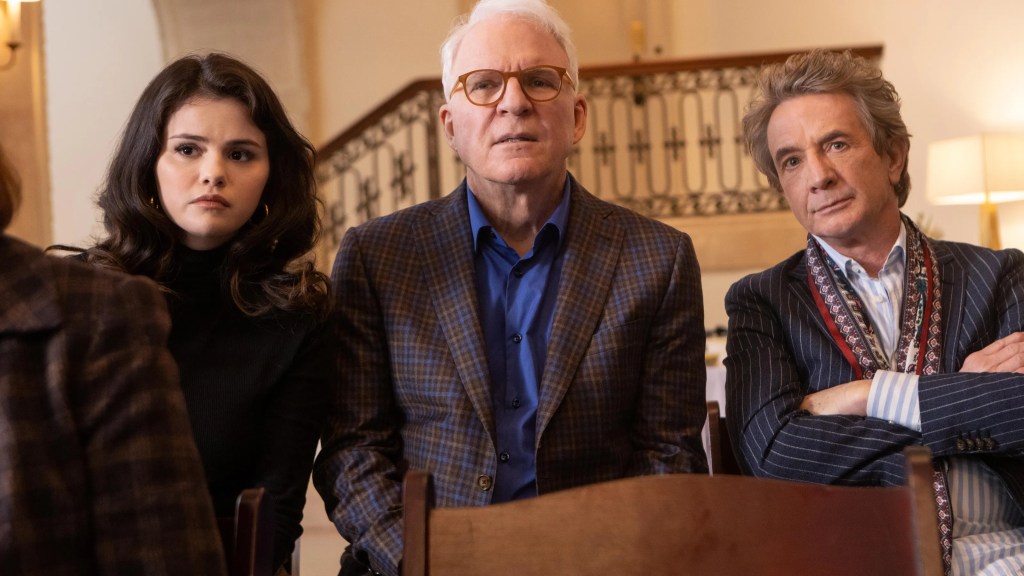
Much of ‘now’ is positive and philosophical, from an enjoyable conversation with Jerry Seinfeld, to an inside look at his work with Martin Short, to the creation of the Number One is Walking cartoon book with Harry Bliss. Director Morgan Neville cuts in and out of different sections and conversations, fully immersing the audience in the embracing of life that Martin takes on today in his older years. There’s a lot to appreciate, and so I also soaked into the moments and took them in – something that we all try to do better, all the time.
From a personal perspective, and having read his autobiography ‘Born Standing Up’ some years ago, it’s a good reminder that although Steve finished his stand-up not to far from my own existence, his indelible mark of comedy and writing somehow found its way into the soul of this young man, through VHS and a lucky introduction to Roxanne and L.A. Story – here in the UK. It almost feels impossibly odd that a 10-year-old could find such solace in the likes of those two films, plus the likes of The Man with Two Brain, All Of Me, and Planes, Trains and Automobiles but, my friends, he really did * (Yes, I did, and still do)
But, before further deviation, Morgan’s film gives us outstanding access, and doesn’t always focus on the good things, there are deep conversations about depression and loneliness, but left with a lingering of hope. What I also revelled in was the way Steve spoke about his films and characters, as it’s the same way I’ve felt about them my whole life, including the atmosphere, disposition or motive. When that connection to art lines up with what you originally loved about it, that’s a significant and exciting revelation.



While I may be distinctly biased, I was genuinely unsure what STEVE! (martin) a documentary in 2 pieces would bring to the table, with the hope that it’d be excellent (the same hesitance I had with Only Murders in the Building – which has been exceedingly exceptional) and it surpassed those expectations, and beyond that as well. Depth. Genuineness. Complications. All these things are here, and then the light out of the tunnel, which you’ll have to experience for yourself. As Steve says, the secret to aging is being useful, and the most important thing of all? Home. Which is where he is happiest now, and that’s a tremendously uplifting feeling to end on.



![The Cat And The Canary Blu-ray review: Dir. Paul Leni [Masters Of Cinema]](https://criticalpopcorn.files.wordpress.com/2024/04/image-5.png?w=1024)
![Building the Batmobile Tumbler [Hachette Partworks: Issues 41 – 52]](https://criticalpopcorn.files.wordpress.com/2023/03/maxresdefault.jpg?w=1024)
![All That Money Can Buy Blu-ray review: Dir. William Dieterle [Criterion Collection]](https://criticalpopcorn.files.wordpress.com/2024/04/devil-daniel-webster.png?w=1024)
![The Lord of the Rings: The Return of the King in Concert review [Live at the Royal Albert Hall]](https://criticalpopcorn.files.wordpress.com/2024/03/the-lord-of-the-rings-return-king-in-concert-royal-albert-hall.jpg?w=1024)

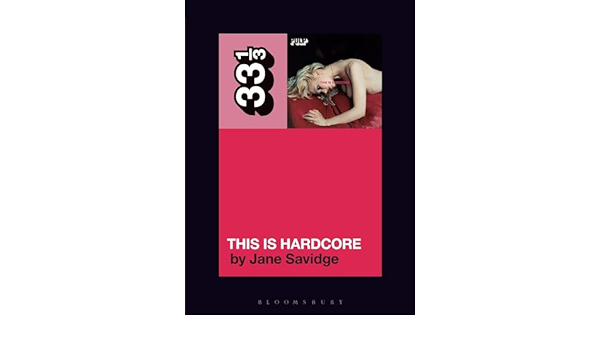
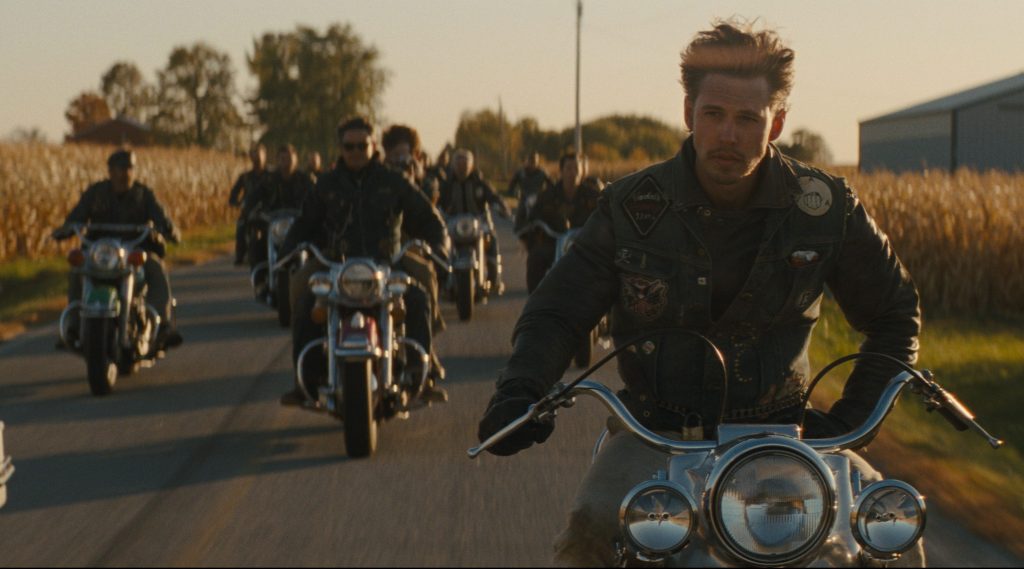

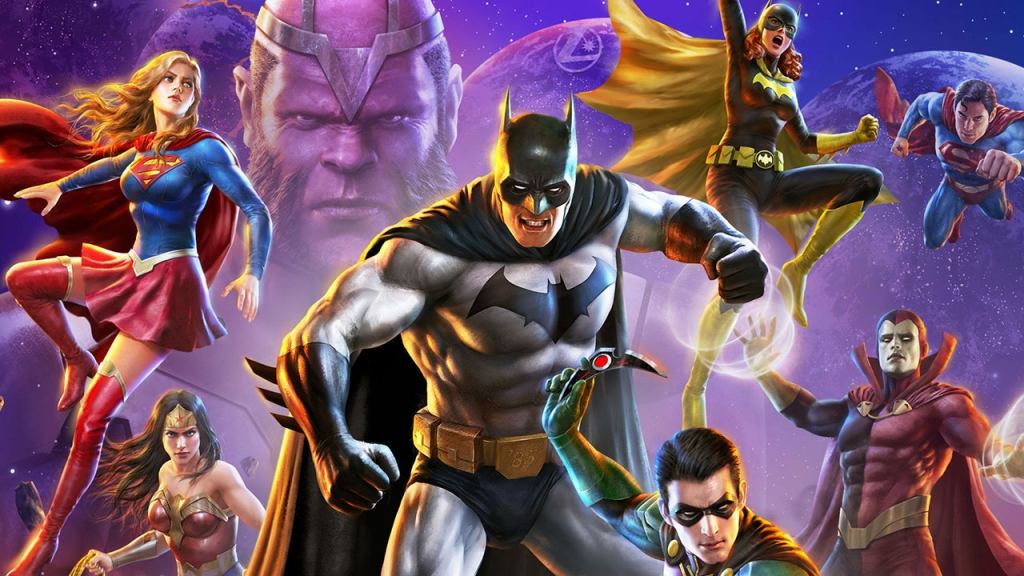
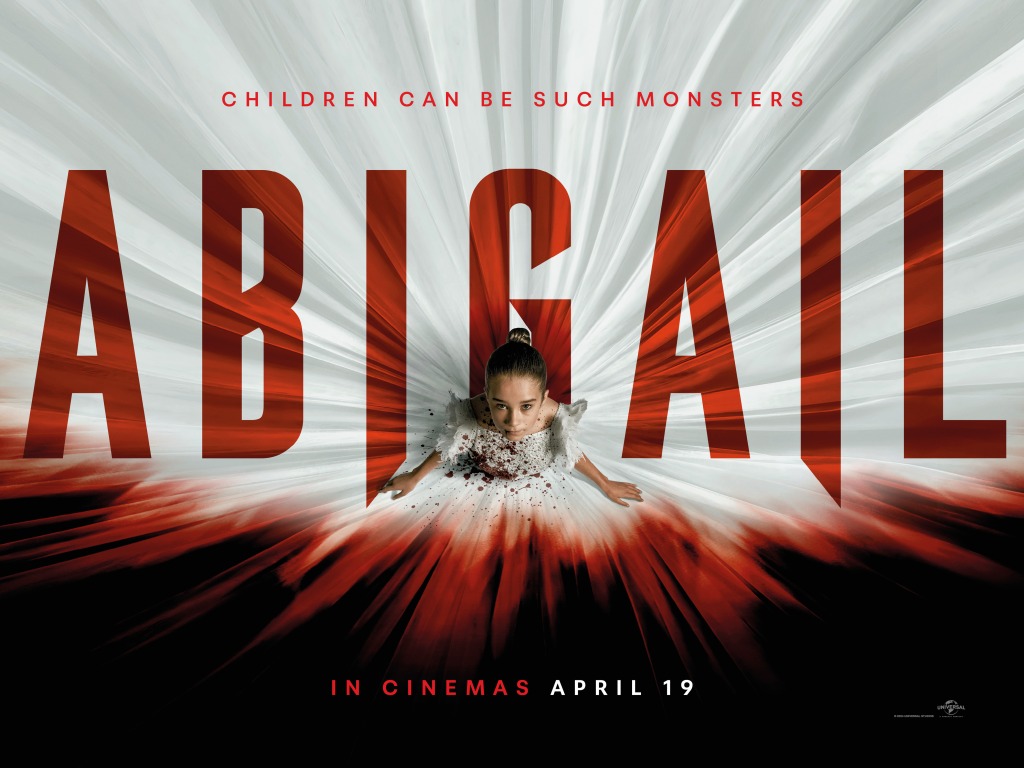
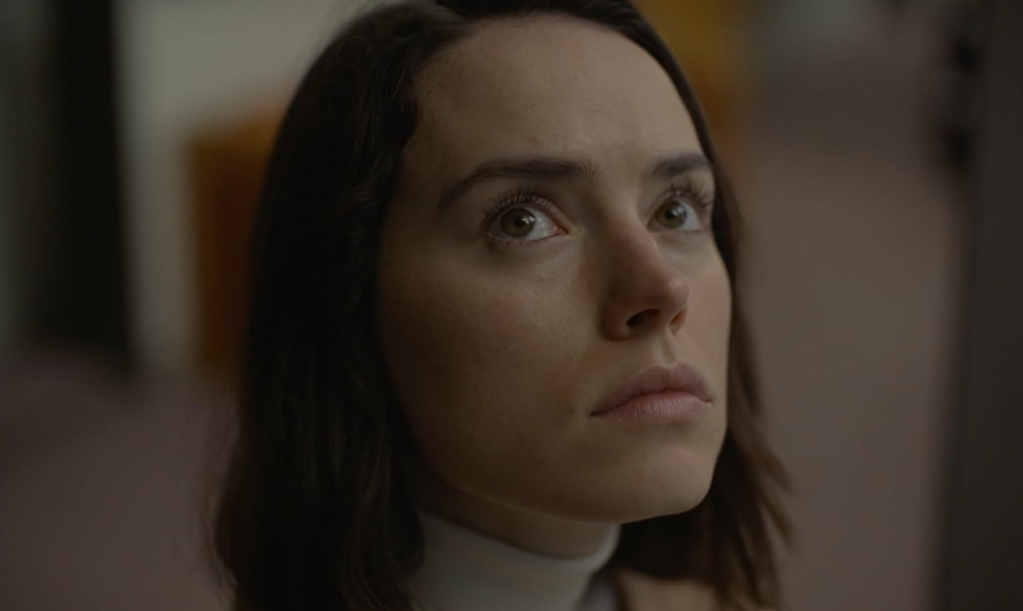
Post your thoughts